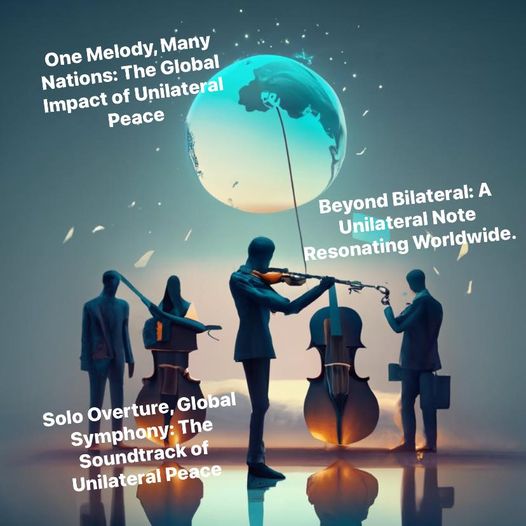
Peace is like a delicate dance between two partners, requiring mutual effort and understanding. However, the harmonious rhythm of peace can only truly emerge when one party takes the courageous step forward unilaterally, paving the way for reconciliation and tranquility. Without this unilateral initiative, the symphony of peace remains incomplete, trapped in the dissonance of unresolved conflicts.
In the vast tapestry of diplomacy, peace resembles a finely woven fabric. Threads of cooperation intertwine, creating a pattern that is only complete when one party takes the courageous step to mend any frayed edges. Like a skilled weaver who mends a tapestry with a solitary thread, the initiation of peace often requires a singular, decisive act that sets the stage for reconciliation.
Picture a dense forest where the rustling leaves signify the whispers of shared aspirations. For peace to flourish, one must be willing to plant the seeds of understanding unilaterally, nurturing the soil of dialogue and compromise until the forest of harmony grows tall and abundant. Just as a single tree can transform a landscape, a unilateral initiative can catalyze the transformation from discord to concord.
In the treasury of sagacity, there exists a gem of insight: the recognition that peace should not be entwined with other quandaries, such as the pursuit of justice, or financial gain. The essence of peace lies not in immediate gratification but in the opportunity it provides to journey towards desired goals. Picture it as a voyage across uncharted waters, where the tranquility of the sea allows for navigation towards distant shores. In this calm expanse, the focus is on the destination, not the fleeting waves of justice or the ephemeral winds of financial gain. As the sailor of peace charts the course, the horizon of possibilities stretches forth, a testament to the enduring nature of endeavors guided by the compass of harmony.
In the grand symphony of international relations, peace acts as the elusive melody that emerges when a lone musician takes the first note. The resonance of that initial sound reverberates across borders and resonates with the hearts of nations, creating a melodic alliance that transcends differences. Thus, while peace may be a bilateral aspiration, it often requires the solitary overture of one party, a unilateral gesture that echoes through the corridors of time, resonating as the catalyst for a harmonious coexistence.

